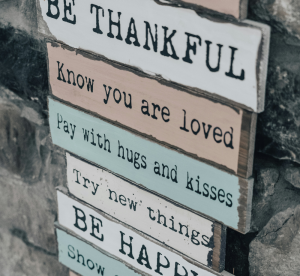How To Help Someone With Low Self Esteem?
…and what I’ve learned from dealing with my own, too.
Let me start with this:
I’m not perfect. I’ve had moments – hell, entire chapters – where I doubted my worth, over-apologized for existing, and convinced myself that I wasn’t enough. So when someone close to me is struggling with low self-esteem, I don’t see them as broken. I see them as someone who’s tired, overwhelmed, maybe lost for a while. I’ve been there. Some days, I still go there.
Helping someone with low self-esteem isn’t about “fixing” them. It’s about standing beside them when their self-worth feels like it’s crumbling. And showing them, day by day, that they’re not alone—and never were.
What Low Self-Esteem Looks Like (And What I’ve Seen in Myself, Too)
It’s not always obvious. Sometimes it wears a mask. Sometimes it’s quiet. And sometimes, it sounds a lot like our own thoughts.
1. Negative Self-Talk
You know that voice that says, “I’m not good enough” or “Why would anyone care”? I’ve heard that voice in my own head, too. It’s cruel. It’s exhausting. But I’ve learned that just because we think it, doesn’t mean it’s true.
2. Perfectionism
The need to do everything just right, or else… what? People will leave? Think less of us? I used to think being perfect was the only way to be accepted. Turns out, it’s just a fast track to burnout.
3. Social Withdrawal
There were days when I didn’t want to talk to anyone because I felt like a burden. If someone I care about starts pulling away, I don’t push—I open the door and remind them they’re welcome back anytime.
4. Struggling to Be Assertive
I used to say “yes” just to avoid conflict, even when everything in me screamed “no.” Learning to speak up for myself was hard. So now, when someone I love struggles with that, I remind them they do have a voice—and it matters.
5. Constant Comparison
Scrolling through social media and feeling like everyone’s got it more together? Guilty. It’s a trap. So when someone I care about starts comparing, I help them remember: you’re not behind—you’re just on your own path.
6. Isolating
When I isolate, it’s usually because I feel like I don’t belong or I’m too much. So if I see someone pulling away, I don’t judge it, I offer presence, gently and patiently.
7. Over-Apologizing
“I’m sorry” was once my default phrase. Sorry for asking. Sorry for existing. Sorry for taking up space. That’s not humility, that’s self-erasure.
8. Avoiding Challenges
When you don’t believe in yourself, even trying feels risky. I’ve avoided things I cared about just to protect myself from failure. Now, I encourage others to try anyway. Courage isn’t about confidence—it’s about doing it scared.
9. Emotional Sensitivity
Criticism used to cut me deep, even if it was meant kindly. If someone I love reacts strongly to small comments, I don’t mock them; I understand it.
10. Neglecting Self-Care
I’ve had days where brushing my hair or making food felt like climbing Everest. So when someone I care about lets themselves go, I don’t see laziness. I see someone hurting, and I show up with care, not judgment.
So, How Do I Help?
Through trial and error, through falling and getting back up, through love and pain—I’ve found a few things that make a difference:
1. Gentle Consistency
Not lectures. Not tough love. Just consistent reminders that they matter. That I’m not going anywhere. That healing isn’t a race.
2. Rewriting the Narrative
Sometimes I ask, “Would you say that to me?” when I hear them tear themselves apart. And most times, they say no. That’s when I ask, “Then why say it to yourself?”
3. Daily Affirmations (That Don’t Feel Fake)
We find the ones that stick. “I am worthy of love.” “I’m allowed to make mistakes.” “My feelings are valid.” We write them down, we say them out loud, even if it feels weird at first.
4. Celebrate Tiny Wins
If they went outside today, stood up for themselves, or just got out of bed when it felt impossible, we celebrate. Because that’s not small. That’s powerful.
5. Encourage a Growth Mindset
I remind them (and myself): mistakes aren’t the end. They’re just part of learning. Nobody blooms without a few storms.
6. Validate Their Emotions
No, “you’re being too sensitive.” No, “just get over it.” Instead: “I see you. I hear you. It makes sense you feel that way.”
7. Teach Coping Tools
Breathing, journaling, movement, rest—whatever helps them feel safe in their body again. I offer options, not orders.
8. Remind Them to Nourish Themselves
From food to fresh air to turning off their phone. Self-care isn’t always bubble baths. Sometimes it’s boundaries. Sometimes it’s brushing your teeth.
9. Encourage Safe, Supportive Connections
Being surrounded by the wrong people can break you. So I gently steer them toward those who uplift, not drain. And I stay.
10. Help Them Let Go of the “Perfect” Myth
Progress is messy. Healing is messy. I remind them: you’re not here to be perfect. You’re here to be real.
11. Go Deep, If They’re Ready
Sometimes the low self-esteem goes way back—childhood wounds, trauma, abandonment. When they’re open to it, we talk. We cry. We unpack it together, piece by piece.
Final Thoughts (Just Me, Being Honest)
The truth? I’ve had to learn to hold space for others while also healing myself. It’s not easy. But the deeper I go in my own self-worth journey, the more clearly I see others. And the more compassion I have, not just for them, but for myself.
Helping someone with low self-esteem isn’t a one-time act. It’s being present, being patient, and being real. It’s saying, “I won’t give up on you. And I won’t let you give up on yourself, either.”
We all have wounds. We all carry stories. But we can choose to walk each other home, hand in hand, with grace and truth leading the way.
Photo by Alysha Rosly on Unsplash





